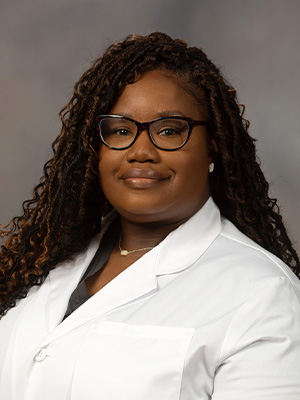Having tooth pain? Don’t wait to seek relief
For many, the onset of a bad toothache comes not just with pain, but with the dilemma of why and what to do about it.

Unless you’ve suffered an obvious injury, the most common reason for a toothache is “decay in itself ... long-term neglect,” said Dr. James Lott, an associate professor in the School of Dentistry on the University of Mississippi Medical Center campus.
“It can get to the point where it just erupts,” said Lott, who serves as vice chair of the Department of Care Planning and Restorative Sciences.
February holds a number of national oral health observances. It’s Children’s Dental Health Month and Gum Disease Awareness Month. Feb. 9 is Toothache Day, and Feb. 28 is Tooth Fairy Day.
Experts in the School of Dentistry say patients can take steps to make sure they’re not “celebrating” some of those milestones - with Tooth Fairy Day, of course, being a mixed blessing for kids!
Tooth pain occurs when the nerve in the root of a tooth, or structures surrounding the tooth, gets irritated. When a tooth’s enamel is worn down, the dentin or even the nerves are exposed. That can make eating or drinking something that is very hot or very cold cause sudden, sharp pain.
Grinding your teeth or clenching your jaw due to stress can wear down enamel, and that can damage crowns and fillings. And for some, a sinus infection results in tooth pain.

“Often, the tips of the roots of your teeth can sit right below the borders of our sinuses,” said Dr. Angelia Garner, a professor in the SOD’s Department of Dental Hygiene. When pain occurs because the sinuses are filled, “someone might think they have a dental issue, when it’s an issue with their sinuses.”
It’s especially important for cancer patients and pregnant women to be cognizant of tooth pain, Garner said. “Rises in hormone levels in pregnant patients can lead to tooth sensitivity,” she said.
If you’re initially not sure what is causing moderate to severe tooth pain and you can’t get in to see the dentist right away, “one of the best things to do is take ibuprofen and alternate it with Tylenol, if you are able to take those medications,” Lott said. “If that doesn’t touch it, you definitely need to get to your dentist.
“If you have an infection, ibuprofen or Tylenol won’t fix it. You will need some type of procedure or possibly antibiotics to resolve the problem.”
It can be dangerous to try to wait out a toothache by taking medicines for pain, Lott said. “The worst scenario would be swelling in pockets that could obstruct your airway, or an infection that stays around and can eventually get into your bloodstream and become systemic.”
What you should not do, Lott said, is try to self-medicate, such as taking a few leftover antibiotics.
The best medicine for a toothache, Lott and Garner said, is to get the preventive care you need so that it won’t happen in the first place.
“Preventive care allows us to catch things earlier, and to treat things non-surgically,” Lott said. “If you catch it early enough and it requires a procedure, it might be simpler. Compare it to having a scratch, rather than a wound that needs stitches.”’
Oral disease prevention and patient education are two of the primary roles of a dental hygienist, Garner said. “If you have a dental home and are seeing your dentist and dental hygienist routinely, we can catch a lot of this early on, such as cavities when they are super-duper small,” she said.
Many patients are at risk for periodontal disease, a serious gum infection that can damage the soft tissue and bone supporting a tooth. “It starts out when the gums get inflamed from bacteria and plaque on the teeth,” Garner said. “The plaque gets hard and becomes tartar, and it houses bacteria that hang out on the gums. If it’s not treated and advances, it becomes periodontal disease.”
The School of Dentistry is uniquely qualified to offer a wide range of care to address the most complex dental issues, Garner said. “It’s a one-stop place,” she said. “You have both general dentists and specialists, and you have your hygienists. We have state-of-the-art equipment that you can’t get at some other places in our state.”
Lott recommends seeing your dentist twice annually for teeth cleaning and an examination. “Most have on-call services, and if you are a patient of record, you are likely to benefit from that.”
Between visits, patients should practice good oral hygiene the old-fashioned way: Brush your teeth after meals, in the morning and in the evening, paying close attention to the gum line; use dental floss or a water pick to clean areas that a toothbrush can’t reach; and when you can’t brush after a meal, at least rinse your mouth vigorously with water or an oral mouth rinse.
Even if you think you can’t afford it or don’t need it, preventive care from dental providers should be a priority, Lott and Garner advise.
“In the long run, seeing your dentist regularly will be much cheaper than trying to fix the problems that have occurred,” Lott said.
To make an appointment with a School of Dentistry provider or for general information, call (601) 984-6185.
The above article appears in CONSULT, UMMC’s monthly e-newsletter sharing news about cutting-edge clinical and health science education advances and innovative biomedical research at the Medical Center and giving you tips and suggestions on how you and the people you love can live a healthier life. Click here and enter your email address to receive CONSULT free of charge. You may cancel at any time.



